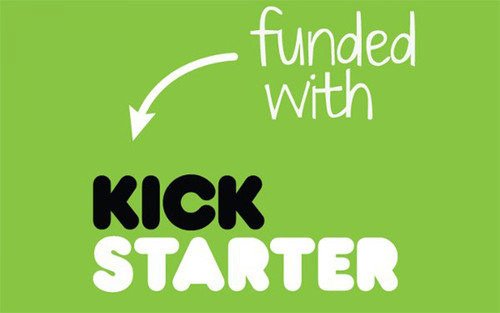The Year Of Kickstarter Journalism: Crowdfunding Is Doing What The News Industry Can’t

As the publishing industry struggles to figure out a sustainable business model in the digital age, crowdfunded journalism projects have been taking off in droves on Kickstarter, where more and more would-be and wannabe publishers are launching successful campaigns to get their projects off the ground. Whether these projects will thrive or fizzle remains to be seen, but one thing is clear: Crowdfunding’s potential to launch new publishing startups is something journalists can no longer ignore.
And they’re not. Last year, Kickstarter-funded journalists reported from dozens of countries on six continents, according to the website. These aren’t just fly-by-nighters either. Many veteran journalists who used to have paying jobs at old media are using the site to fund projects, often because they don’t have any other choice. In June of last year, when most of the editorial staff of Good magazine was laid off, staffers didn’t go scrambling on Mediabistro to start scanning the job postings. Instead, they got together and launched a campaign to fund their own publication -- called Tomorrow magazine.
With the goal of raising $15,000 for production and design costs, the group of eight editors raised $45,452 with the help of 1,779 backers. In the spirit of the Internet’s open culture, the group even posted a Google Doc breakdown of their expenses -- just in case backers wanted to see how their money was being spent. Issue No. 1 of Tomorrow magazine is available now.
To celebrate the explosion of crowdfunded journalism, Kickstarter this week posted the year’s most-funded journalism projects on the site. The projects range from magazines and Web portals to freelancers looking to fund investigative correspondence in foreign countries. The radio program 99 Percent Invisible, which follows the world of architecture and design, claimed the honor of being the best-funded journalism project this year. A project of the San Francisco-based radio producer Roman Mars, the radio show earned $170,477 from 5,661 donors.
Local journalism, which as an industry has been struggling to make the transition from print to the Web, is also making a go of Kickstarter. Fern Shen, a former staff writer for the Baltimore Evening Sun, launched Baltimore Brew, a daily online journal serving the city’s metropolitan area. Shen raised $24,624 with only 296 backers, making the Baltimore Brew the most-funded locally aimed journalism project this year.
The rise of Kickstarter journalism comes at a time when the news industry has never been more divided over how, and to what extent, journalism should be funded. The print ad revenue that newspapers and magazines relied on for more than a century is drying up far faster than online advertising can make up for it. And while everyone agrees that professional, investigative journalism costs money, the question of how news companies should pay for that journalism is stirring fierce debates over the viability of paywalls, online advertising, and even whether journalism should try to become a nonprofit industry.
Kickstarter, if nothing else, offers a kind of life raft-like alternative for generating quick revenue. Projects are funded on an all-or-nothing basis and are given a limited amount of time to reach their goals. But once those goals are met, the question of sustainability still looms, as Kickstarter-funded journalism projects attempt to make the transition from dream to reality.
Check out the full list of the year’s most funded journalism projects here.
© Copyright IBTimes 2025. All rights reserved.






















